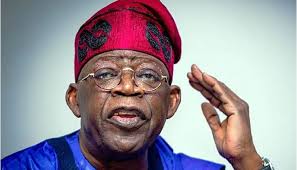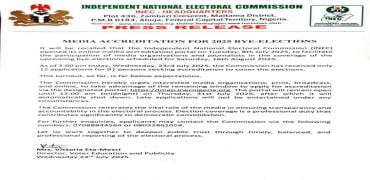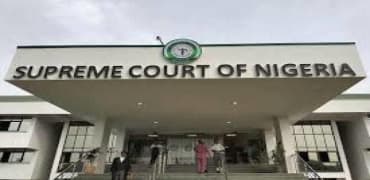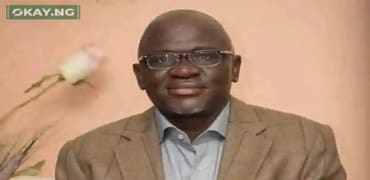Tinubu Mobilizing All Parts of Nigeria, Not Just Lagos — Sunday Dare Counters Daily Trust Report
Tinubu Mobilizing All Parts of Nigeria, Not Just Lagos — Sunday Dare Counters Daily Trust Report
Special Adviser to President Tinubu on Media and Public Communications,Sunday Dare, has dismissed claims that Lagos is unduly favored in federal project allocations under President Bola Ahmed Tinubu, describing such assertions as “inciteful and fraudulent.”
In a response to a recent Daily Trust headline that highlighted Lagos receiving ₦3.9 trillion worth of projects in two years, Dare said the report misrepresented the facts and failed to provide the context necessary for a balanced national conversation.
“Numbers without context are not facts. They are distortions—weaponized to inflame rather than inform,” Dare said. “The attempt to portray Lagos as over-pampered while casting the North as neglected is not just misleading—it is lazy journalism.”
North Not Marginalized, But Mobilized
According to Dare, the North continues to attract some of the largest capital allocations under the current administration. He pointed to flagship projects such as the Abuja–Kano Expressway dualization, the ₦12.1 trillion Sokoto–Badagry Superhighway (with ₦3.63 trillion already approved for rollout in Sokoto and Kebbi), the Kano–Maradi Railway, the Zungeru–Kano Power Line, and inland dry ports in Funtua and Bauchi.
He also highlighted massive irrigation and river basin projects—including the Sokoto-Rima, Upper Benue, and Hadejia-Jama’are basins—alongside Special Agro-Processing Zones in Borno, Kaduna, and Kebbi, and wheat development initiatives in Jigawa and Kano.
“This is not marginalization. It is mobilization,” Dare emphasized.
Lagos and Abuja: Burden of Scale
The former minister explained that Lagos and Abuja attract significant federal funding not as favoritism, but because of their unique demographic, economic, and service pressures.
With Lagos hosting over 23 million residents and serving as Nigeria’s commercial nerve center, Dare argued that the city shoulders a national burden. Abuja, he added, is one of Africa’s fastest-growing capitals, with a projected population of 7 million by 2030, housing the civil service, diplomatic corps, and a fast-expanding private sector.
“When these two urban giants work, Nigeria breathes easier. When they fail, the whole country suffers,” he noted.
Development as Continuum
Dare further stressed that national projects are rarely products of a single administration, pointing out that current allocations to Lagos and Abuja stem from development frameworks such as the Economic Recovery and Growth Plan (ERGP 2017–2020), the Economic Sustainability Plan (ESP 2020), and the National Development Plan (NDP 2021–2025). The forthcoming Renewed Hope Plan (2026–2030), he added, will build on these efforts.
“National development is a continuum—not an accident,” Dare said.
Global Parallels
He drew parallels with international models, noting that New York receives billions in U.S. federal support annually due to its size and economic importance, while Johannesburg and Gauteng command significant federal allocations in South Africa as the country’s commercial hub.
“If New York and Johannesburg receive proportional federal support because of their scale, why should Lagos and Abuja be treated differently?” Dare asked.
Conclusion
Dare insisted that investing in Lagos and Abuja is a matter of statecraft, not sectional favoritism.
“The real question is not ‘Why Lagos?’ or ‘Why Abuja?’ The real question is: What happens to Nigeria if Lagos and Abuja are ignored?” he concluded.


















